
Lamin: A Tranquil Oasis in The Gambia
Nestled along the serene banks of the Lamin Bolong, Lamin is a charming village in The Gambia that offers a peaceful retreat from the hustle and bustle of city life. Known for its lush mangroves and abundant wildlife, Lamin is a perfect destination for nature lovers and bird watchers. The village is home to the Lamin Lodge, a unique wooden structure built over the water, where you can enjoy a meal while watching birds and other wildlife in their natural habitat. Lamin's cultural heritage is rich and diverse. Visitors can explore the traditional African lifestyle by visiting local compounds and engaging with the friendly residents. The village market is a vibrant spot where you can find handmade crafts, fresh produce, and local delicacies. The warm and welcoming atmosphere of Lamin makes it easy for tourists to feel at home. For those interested in history, Lamin is close to several historical sites such as the Kachikally Crocodile Pool and the Abuko Nature Reserve. These sites offer a glimpse into the region's past and its natural beauty. Whether you're kayaking through the mangroves or strolling through the village, Lamin promises an unforgettable experience filled with tranquility and cultural immersion.
Local tips in Lamin
- Visit the Lamin Lodge early in the morning or late afternoon for the best wildlife viewing.
- Bring insect repellent, especially if you plan to explore the mangroves.
- Engage with the locals to learn about their culture and traditions.
- Hire a local guide for a more informative and enriching experience.
- Don't miss the village market for unique crafts and local foods.
Lamin: A Tranquil Oasis in The Gambia
Nestled along the serene banks of the Lamin Bolong, Lamin is a charming village in The Gambia that offers a peaceful retreat from the hustle and bustle of city life. Known for its lush mangroves and abundant wildlife, Lamin is a perfect destination for nature lovers and bird watchers. The village is home to the Lamin Lodge, a unique wooden structure built over the water, where you can enjoy a meal while watching birds and other wildlife in their natural habitat. Lamin's cultural heritage is rich and diverse. Visitors can explore the traditional African lifestyle by visiting local compounds and engaging with the friendly residents. The village market is a vibrant spot where you can find handmade crafts, fresh produce, and local delicacies. The warm and welcoming atmosphere of Lamin makes it easy for tourists to feel at home. For those interested in history, Lamin is close to several historical sites such as the Kachikally Crocodile Pool and the Abuko Nature Reserve. These sites offer a glimpse into the region's past and its natural beauty. Whether you're kayaking through the mangroves or strolling through the village, Lamin promises an unforgettable experience filled with tranquility and cultural immersion.
When is the best time to go to Lamin?
Iconic landmarks you can’t miss
Senegambia Craft Market
Discover the heart of Gambian culture at Senegambia Craft Market - a vibrant hub of handmade crafts, local artisans, and unforgettable experiences.
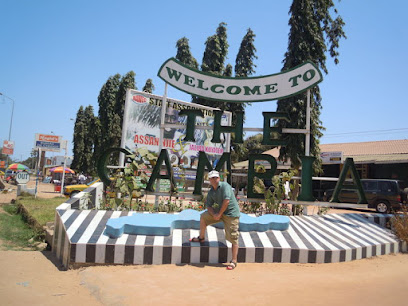
Bijilo National Park
Discover the natural beauty of Bijilo National Park, a serene haven for wildlife lovers and adventure seekers in Gambia.
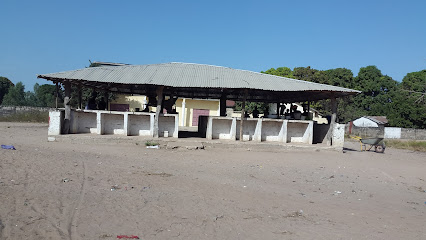
Serekunda Market
Experience the vibrant heart of Gambian culture at Serekunda Market, where local crafts, flavors, and community come alive.
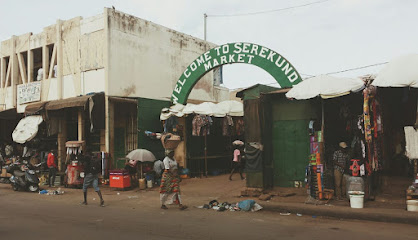
Albert Market
Discover the vibrant atmosphere of Albert Market in Banjul, where local culture, fresh produce, and unique crafts come together in a colorful experience.
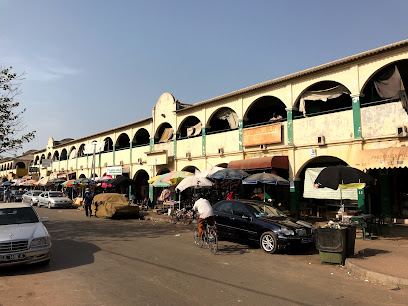
Lamin Lodge
Discover Lamin Lodge: A picturesque boat rental service, restaurant, and bar on the Gambia River, perfect for adventure and relaxation.
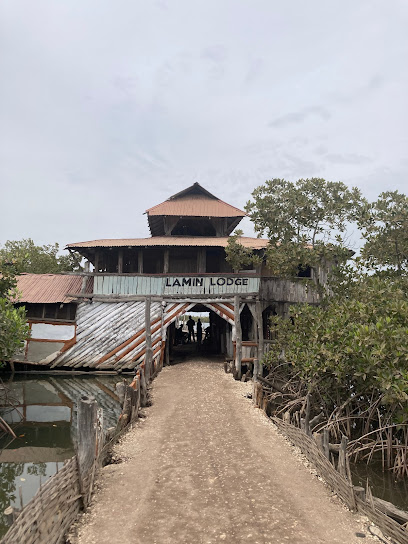
Arch 22
Explore Arch 22 in Banjul, Gambia - a historical landmark offering breathtaking views and a glimpse into the nation's vibrant history.
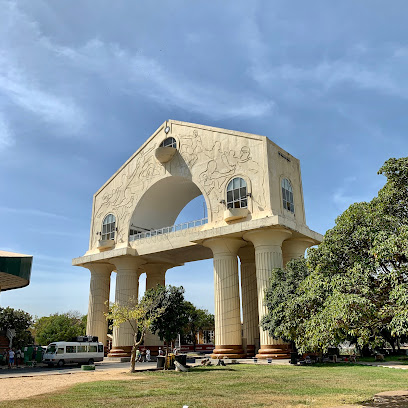
National Museum of the Gambia
Explore the National Museum of the Gambia, a cultural haven showcasing the rich history, art, and traditions of this vibrant West African nation.
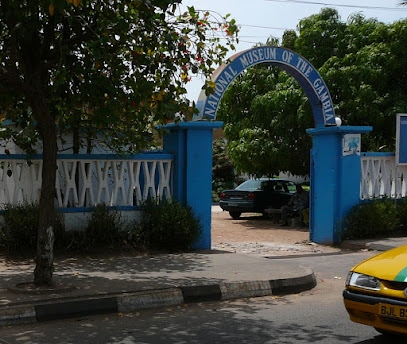
The Gambian Reptiles Farm
Discover the captivating world of reptiles at The Gambian Reptiles Farm, where education meets excitement in a stunning natural setting.
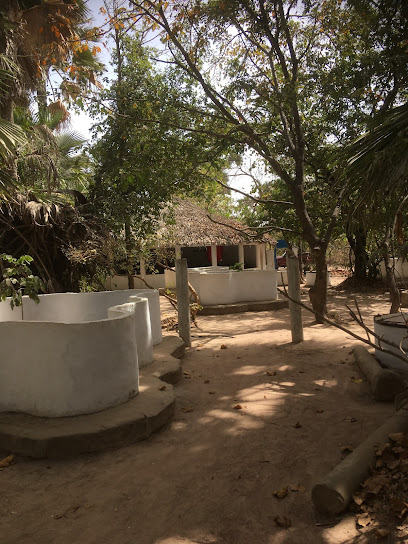
Abuko Nature Reserve
Explore the captivating landscapes and diverse wildlife of Abuko Nature Reserve, a serene nature preserve in Gambia, perfect for nature lovers and birdwatchers.
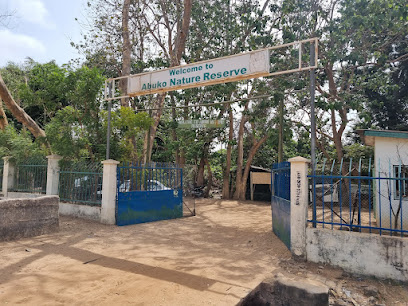
Stone Circles of Gambia
Explore the Stone Circles of Gambia: A UNESCO World Heritage site revealing the ancient history and cultural significance of West Africa's megalithic structures.
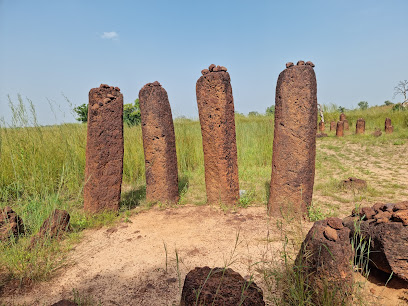
Makasutu
Discover the enchanting Makasutu National Park in The Gambia, a perfect blend of wildlife, nature, and cultural heritage waiting to be explored.
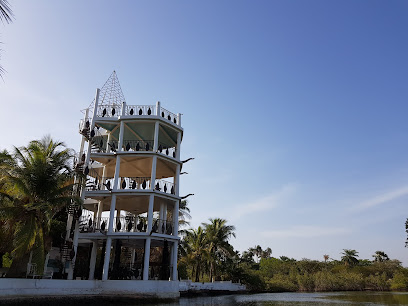
Pipeline Mosque
Discover the Pipeline Mosque in Serrekunda, a serene architectural marvel and a hub of Islamic culture that invites tranquillity and reflection.
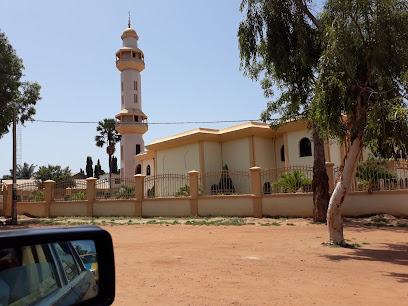
Banjul Central Mosque
Explore the architectural beauty and spiritual significance of Banjul Central Mosque, a key cultural site in the heart of The Gambia's capital.
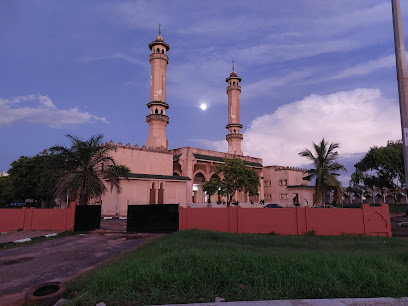
Fort Bullen
Explore Fort Bullen, a UNESCO World Heritage site in Gambia, where history and breathtaking views converge for an unforgettable experience.
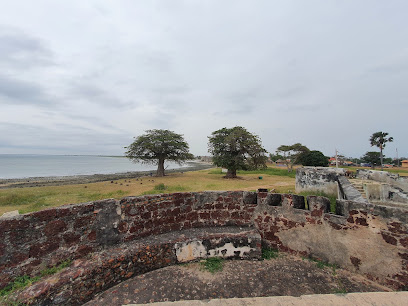
Slavery Museum
Explore the profound history of slavery at the Slavery Museum in Albadarr, where education meets reflection on a critical chapter of human experience.
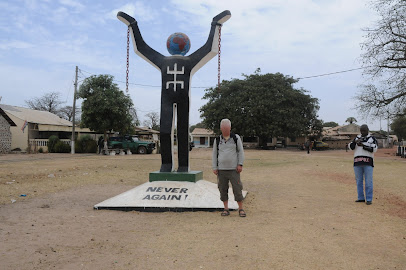
Unmissable attractions to see
Kachikally Crocodile Pool
Explore the enchanting Kachikally Crocodile Pool in Bakau, where nature, culture, and adventure intertwine for an unforgettable experience.
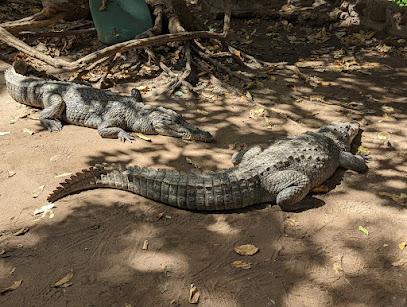
Fathala Wildlife Reserve
Explore Fathala Wildlife Reserve in Senegal, where thrilling safari adventures meet luxurious accommodations in a stunning natural setting.
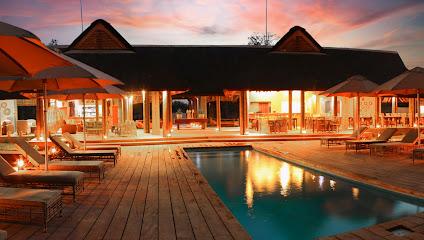
Bijilo National Park
Discover the beauty of nature at Bijilo National Park, a serene escape in Serrekunda, Gambia with rich wildlife and stunning landscapes.
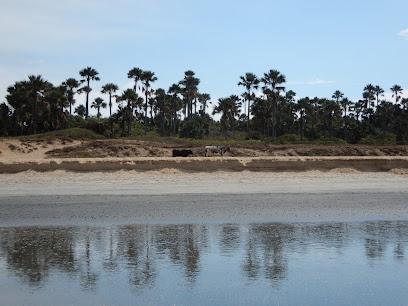
Albert Market
Explore the vibrant Albert Market in Banjul, a colorful hub of culture, cuisine, and unique crafts that captures the essence of Gambian life.
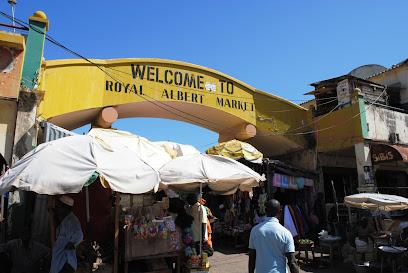
Saloum Delta National Park
Explore the ecological wonders and cultural richness of Saloum Delta National Park, a UNESCO World Heritage site in Senegal.
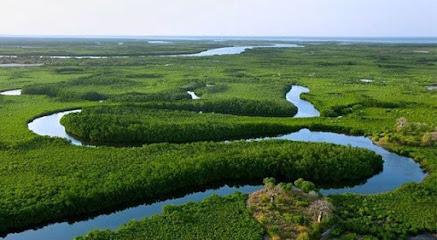
Kunta Kinteh Island
Explore Kunta Kinteh Island, a UNESCO World Heritage Site rich in history and natural beauty, perfect for reflective journeys and scenic experiences.
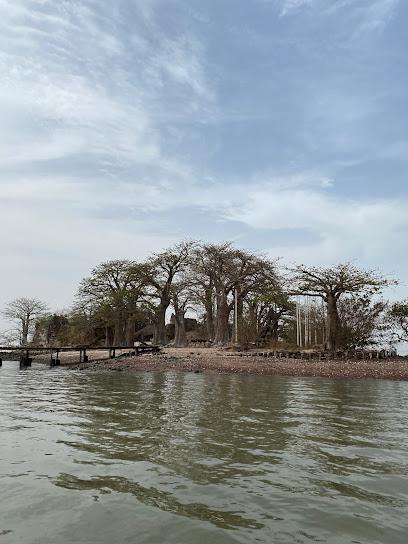
National Museum Of The Gambia
Discover the rich history and vibrant culture of The Gambia at the National Museum, a must-visit attraction in Banjul.
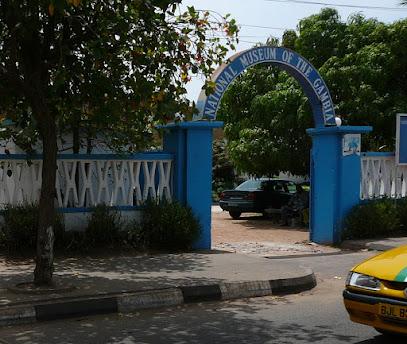
Tanji Fishing Center 🎣 bass
Discover the vibrant culture and fresh seafood at Tanji Fishing Center, a must-see destination for tourists exploring The Gambia's coastal charm.
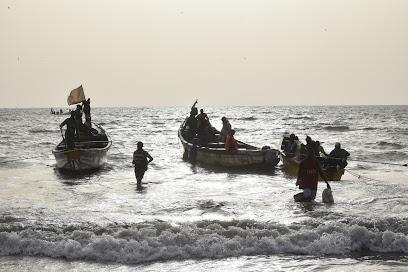
Makasutu
Explore the enchanting Makasutu National Park in Gambia, a blend of wildlife, culture, and breathtaking landscapes for an unforgettable adventure.
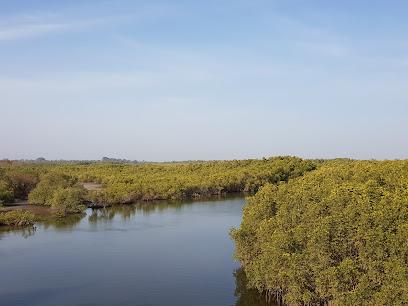
Black and White Safari
Discover the untamed beauty of The Gambia with Black and White Safari, your gateway to unforgettable wildlife adventures and vibrant landscapes.
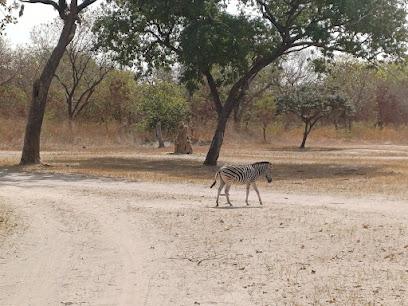
Kotu Bridge
Discover the tranquil beauty and vibrant local culture at Kotu Bridge, a scenic landmark in Serrekunda, Gambia.
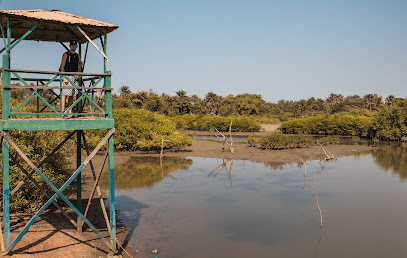
Slavery Museum
Discover the profound legacy of humanity at the Slavery Museum in Albadarr, where history comes alive through powerful exhibits and personal stories.
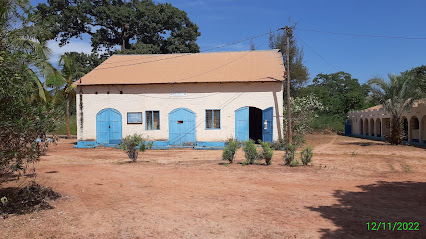
Bakau fish market
Experience the vibrant atmosphere of Bakau Fish Market, where fresh seafood meets rich local culture in a bustling coastal setting.
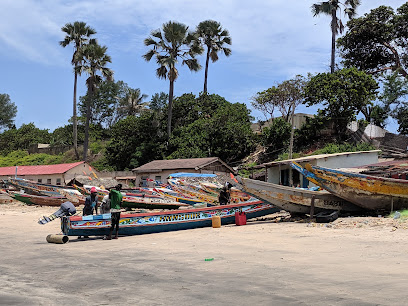
Lamin Island
Explore Lamin Island, a tranquil gem in The Gambia, offering pristine beaches, rich culture, and unforgettable sunsets in a serene tropical setting.
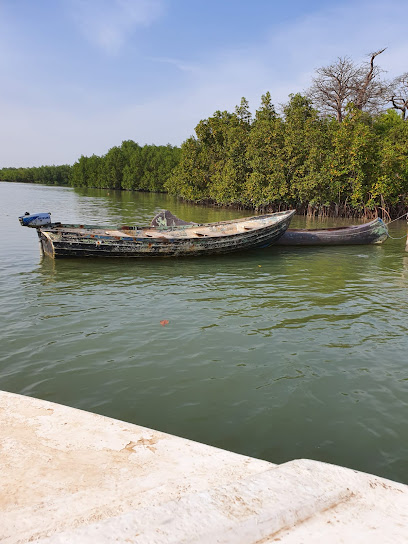
Tanbi Wetland Complex
Explore the stunning Tanbi Wetland Complex, a biodiversity hotspot perfect for nature lovers and birdwatching enthusiasts in The Gambia.
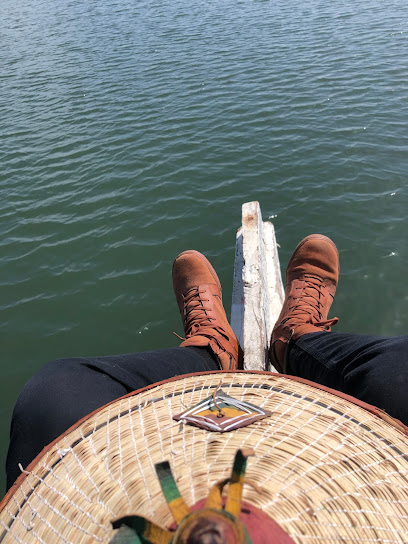
Essential places to dine
Poco Loco Beachbar Gambia
Discover Poco Loco Beachbar in Gambia: A vibrant beachside restaurant offering delicious cuisine and breathtaking ocean views.
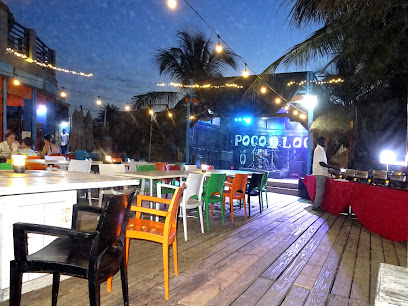
John Raymond'S Beach Bar And Restaurant
Experience vibrant flavors and breathtaking sunsets at John Raymond's Beach Bar and Restaurant in Serrekunda, Gambia.
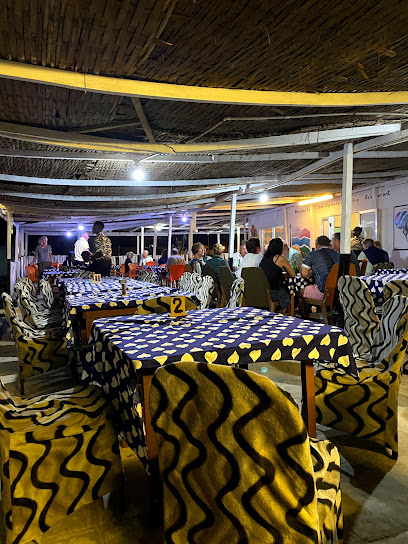
Scala Restaurant
Experience the vibrant flavors of Gambia at Scala Restaurant in Serrekunda, where culinary excellence meets warm hospitality.
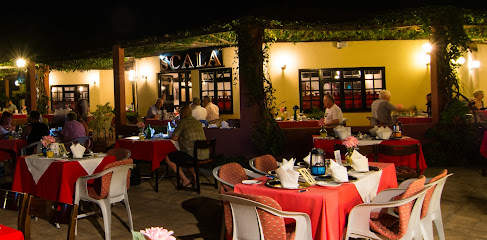
Mo2 Jamaican Bar & Restaurant Gambia (Mosiah's)
Experience authentic Jamaican cuisine at Mo2 Jamaican Bar & Restaurant in Serrekunda - where vibrant flavors meet Caribbean hospitality.
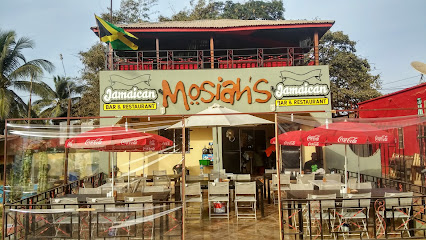
El Sol
Experience authentic Mexican flavors at El Sol in Senegambia - where vibrant cuisine meets warm hospitality in the heart of Gambia.
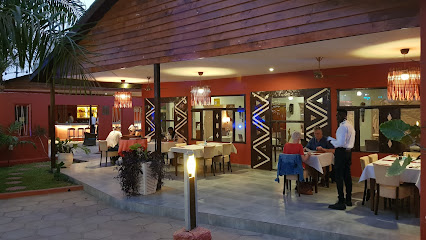
Lamin Lodge
Experience the serene charm of Lamin Lodge with boat rentals, exquisite dining, and stunning views in The Gambia's coastal paradise.
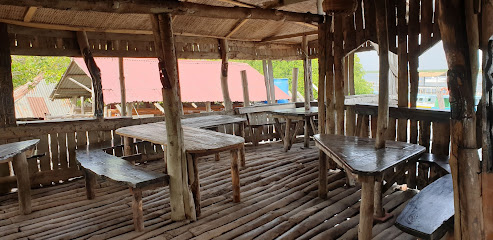
Darboe's Bar and Restaurant
Experience authentic Gambian cuisine at Darboe's Bar and Restaurant on the Trans-Gambia Highway in Serrekunda.
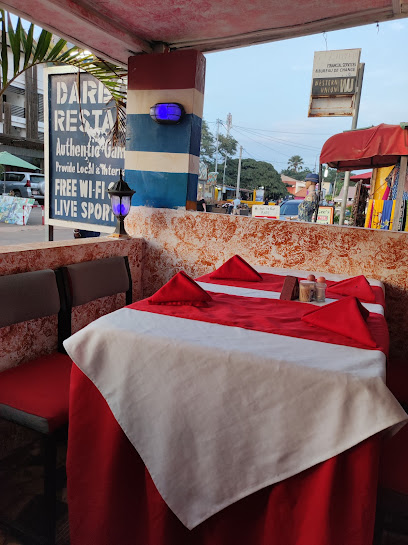
Vineyard Restaurant
Discover authentic Gambian cuisine at Vineyard Restaurant in Serrekunda – where every meal is a delightful experience.
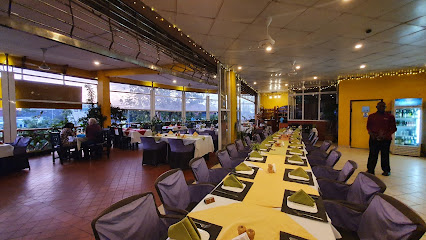
Cassy's Café & Restaurant
Discover authentic Gambian flavors at Cassy's Café & Restaurant in Serrekunda – where delicious food meets vibrant culture.
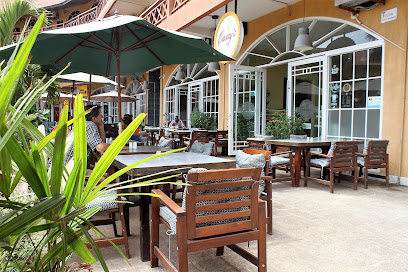
Paradise Beach Club Gambia
Experience authentic Gambian flavors at Paradise Beach Club Gambia - where culinary delight meets breathtaking beach views.
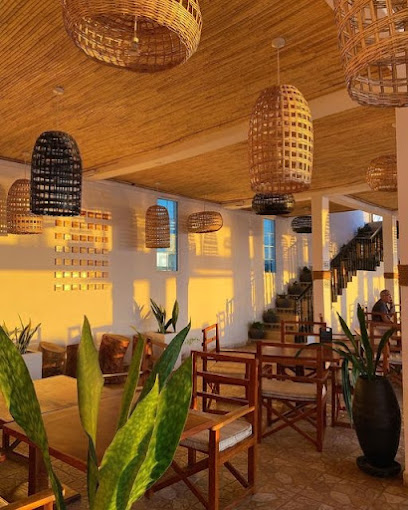
3 Chicks & A Grill
Experience authentic Gambian flavors at 3 Chicks & A Grill on Senegambia Strip—where delicious food meets vibrant atmosphere.
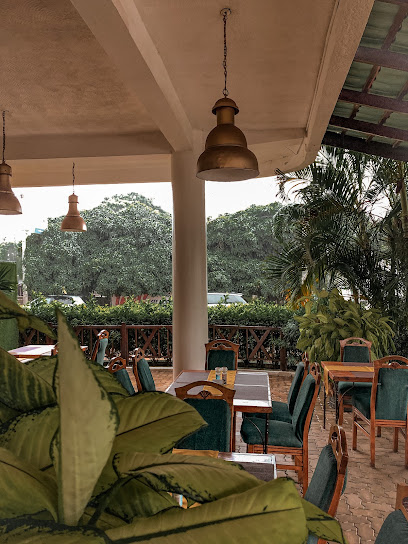
La Parisienne Restaurant
Experience the best of Gambian cuisine at La Parisienne Restaurant in Serrekunda – where flavors meet culture.
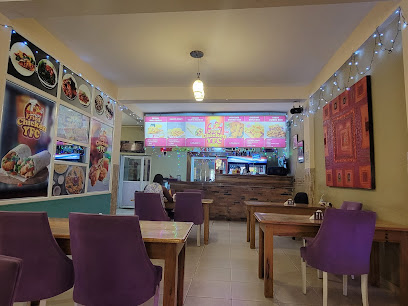
Rendezvous Grill Steak house and Cafe
Experience exquisite dining at Rendezvous Grill Steak House & Cafe in Serrekunda - where every bite is a celebration of flavor!
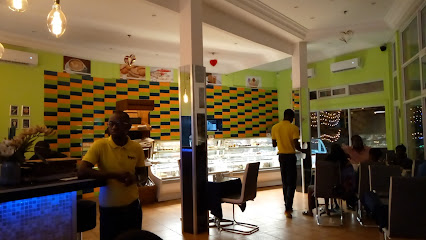
Sea Shells Bar & Restaurant
Discover exquisite local flavors and stunning views at Sea Shells Bar & Restaurant in Serrekunda - a must-visit culinary destination.
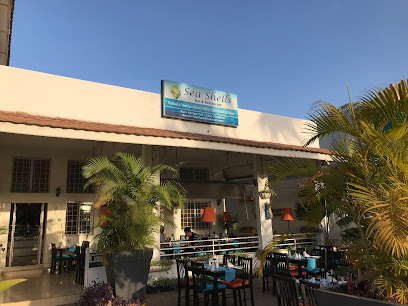
The Clay Oven
Experience authentic Gambian cuisine at The Clay Oven in Serrekunda—where every dish tells a story!
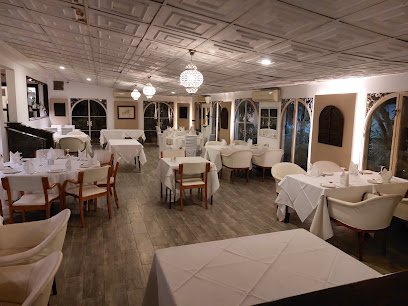
Markets, malls and hidden boutiques
Timbooktoo Bookstore
Discover a world of books at Timbooktoo Bookstore, the literary gem of Serrekunda, Gambia, where every page tells a story.
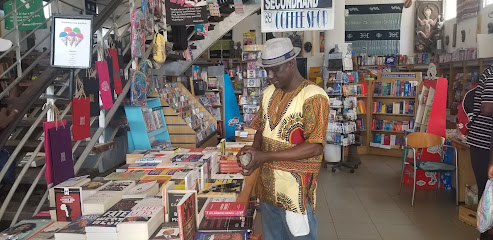
Lamin NTC JUNCTION
Explore the heart of Lamin at NTC Junction, a vibrant general store offering local products and a taste of Gambian culture.

Lamin Main Market
Discover the vibrant Lamin Main Market, a cultural hub filled with local crafts, fresh produce, and an authentic Gambian shopping experience.
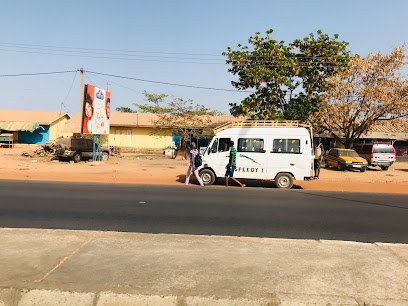
E.E. Minimarket
Discover a taste of Gambian culture at E.E. Minimarket, your essential grocery stop in Lamin, offering fresh produce and local delicacies.
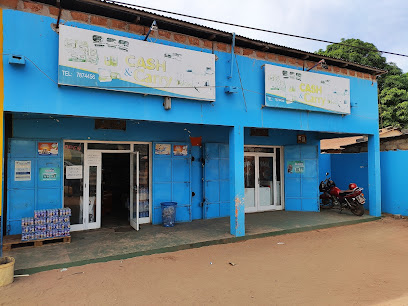
Emporium Banjul
Explore the vibrant world of textiles at Emporium Banjul, where authentic Gambian fabrics come to life.
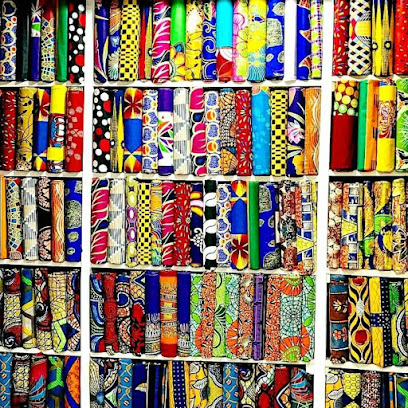
EYETECH GADGETS AND MOBILE SHOP
Experience the latest in mobile technology at Eyetech Gadgets and Mobile Shop, where connectivity meets innovation in Lamin, The Gambia.
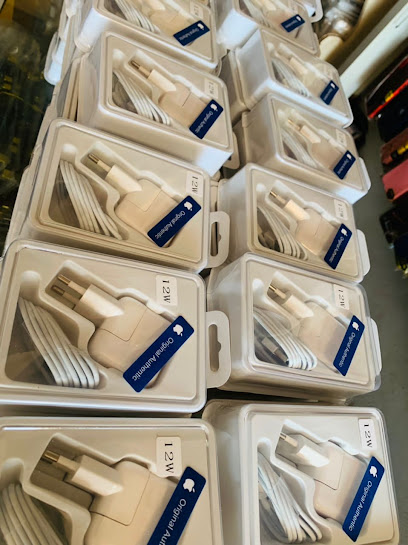
TOP-SHOP
Discover authentic African souvenirs and unique fashion accessories at TOP-SHOP, the perfect spot to find memorable gifts in Gambia.
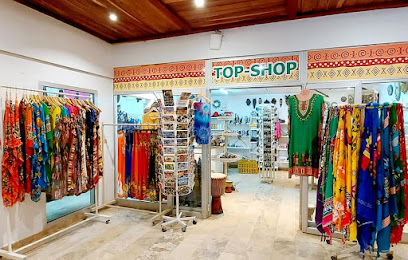
Fabric Emporium
Uncover a world of vibrant textiles and creative inspiration at the Fabric Emporium in Serrekunda, the ultimate destination for fabric lovers.
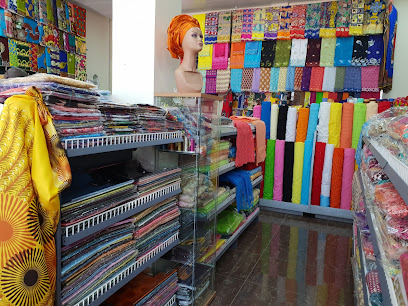
Moryomballaih
Explore Moryomballaih, Lamin's hidden gem for unique treasures, vintage finds, and authentic local crafts that reflect Gambian culture.
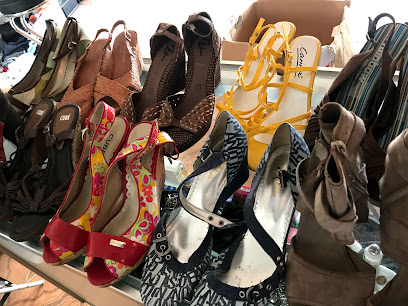
Best buy centre
Explore local flavors and international goods at the Best Buy Centre, Brikama's vibrant grocery store for all your shopping needs.
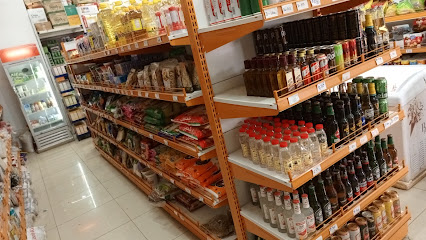
Jammeh Kunda
Explore Jammeh Kunda in Lamin for unique home goods and local crafts that capture the essence of Gambian culture and artistry.

Drammeh and Brother's Trading
Discover quality building materials at Drammeh and Brother's Trading in Lamin, your one-stop shop for construction needs in Gambia.
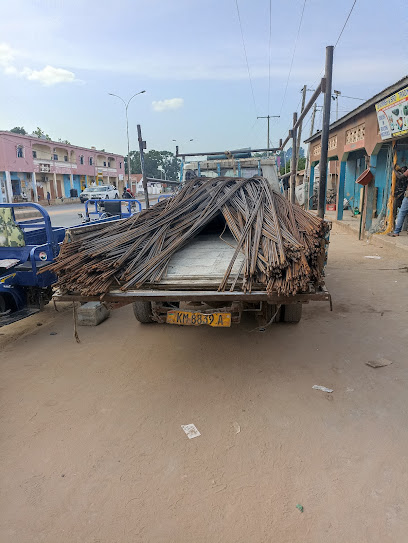
Arzalia
Experience the sweet allure of Arzalia, Serrekunda's beloved chocolate shop, offering artisanal chocolates that delight every palate.
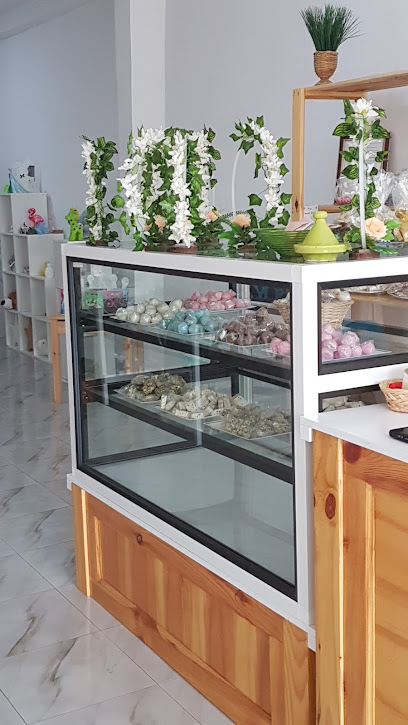
migrants shoe makers
Explore the artistry of Gambian shoemaking at Migrants Shoe Makers in Kerewan, where tradition and craftsmanship come together.

Muhammad lamin sowe general trading
Discover local treasures and immerse yourself in Gambian culture at Muhammad Lamin Sowe General Trading in Basse Santa Su.

Essential bars & hidden hideouts
Solomon’s Beach Bar & Restaurant
Discover the enchanting Solomon’s Beach Bar & Restaurant in Serrekunda, where delicious cuisine meets stunning beach views in a vibrant atmosphere.
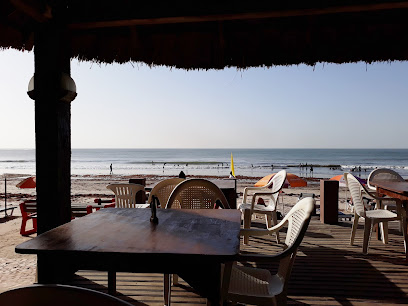
Lamin Lodge
Discover Lamin Lodge, your ultimate destination for boat rentals, local cuisine, and unforgettable tours in The Gambia.
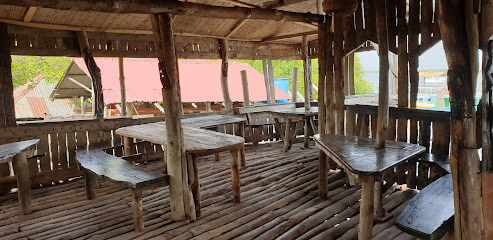
Time-Inn
Experience the vibrant nightlife of Serrekunda at Time-Inn, your go-to bar for refreshing drinks and local flavors.
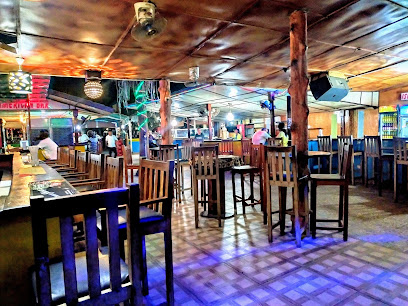
Woodpecker Bar and Restaurant
Experience the vibrant flavors of Gambian cuisine in a lively atmosphere at Woodpecker Bar and Restaurant, your go-to dining spot in Banjulunding.
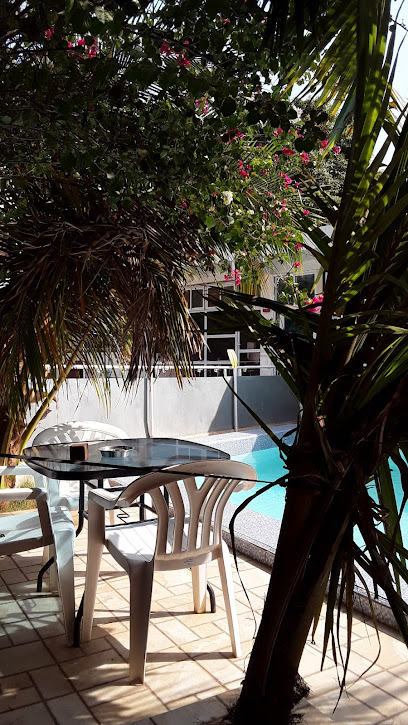
Lamin's Santosha Beach Bar & Restaurant
Experience the serene beauty and delicious flavors at Lamin's Santosha Beach Bar & Restaurant on Kartong Beach, a perfect getaway for every traveler.
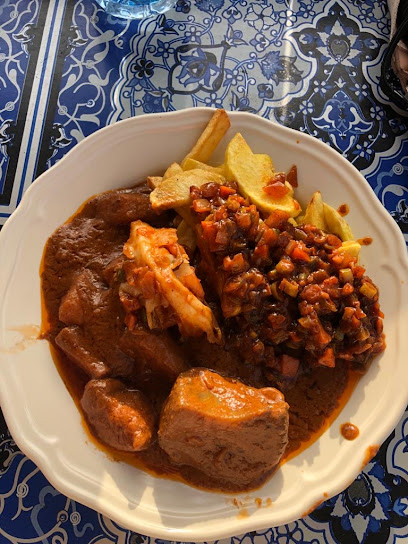
Muna's Bar And Restaurant
Experience the rich flavors of Gambian cuisine at Muna's Bar and Restaurant in Serrekunda, where hospitality meets vibrant local culture.
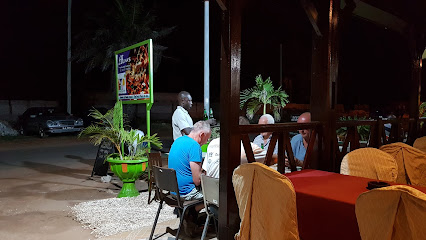
Paddies Bar & Restaurant
Experience the vibrant culture and friendly atmosphere at Paddies Bar & Restaurant in Serrekunda, the perfect spot for drinks and local cuisine.
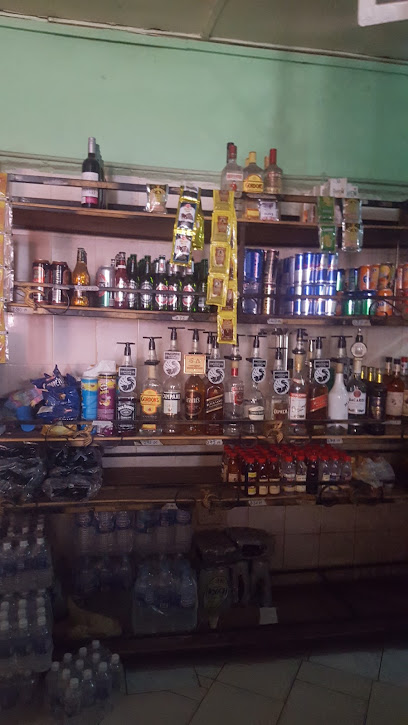
Luigi's Terrace
Experience the vibrant atmosphere of Luigi's Terrace in Yundum, where refreshing drinks meet stunning views and lively social scenes.
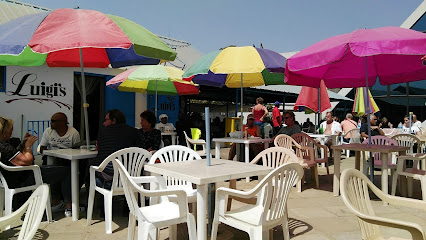
Papa's Bar
Discover the vibrant atmosphere of Papa's Bar in Serrekunda, where local culture meets refreshing drinks and friendly faces.
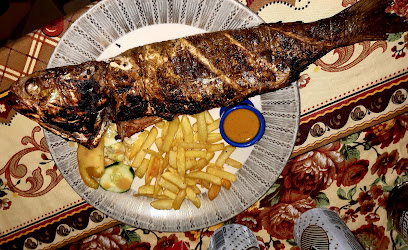
Spendaz Bar Lounge & 24hr Restaurant
Experience the lively ambiance and diverse menu at Spendaz Bar Lounge & 24hr Restaurant, a top destination for food and drinks in Serrekunda.
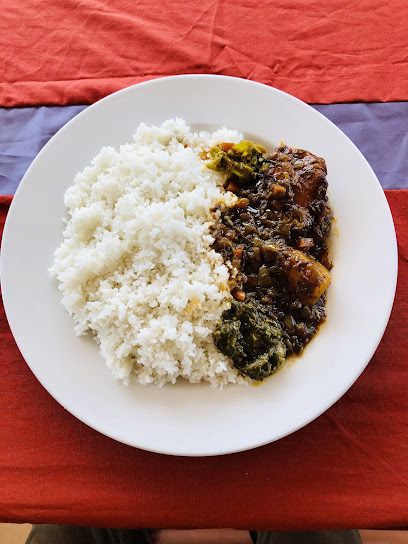
Alima's Restaurant Snapchat
Discover the rich flavors of Gambian cuisine at Alima's Restaurant in Serrekunda, where vibrant culture meets delightful dining experiences.
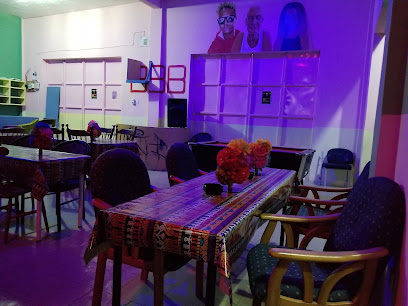
Tony's Bar
Discover the vibrant atmosphere of Tony's Bar in Serrekunda, where locals and tourists enjoy great drinks and live music.
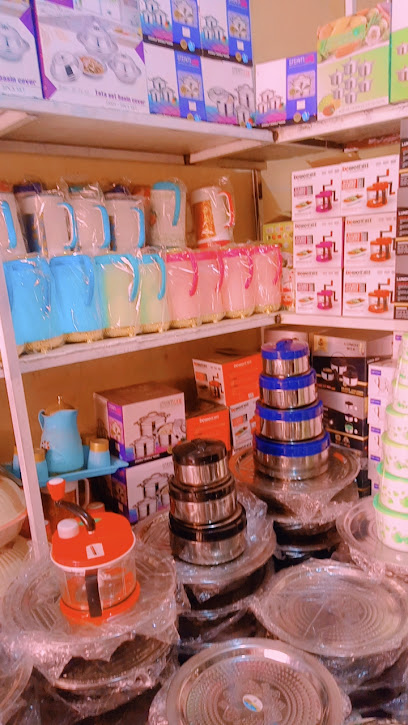
Brikama
Explore Brikama, The Gambia's vibrant cultural hub, where traditional crafts, delicious cuisine, and warm hospitality await every traveler.

Lamin's Juice Bar
Discover the refreshing flavors of Lamin's Juice Bar in Serrekunda, where local ingredients meet vibrant atmosphere for the perfect drink.
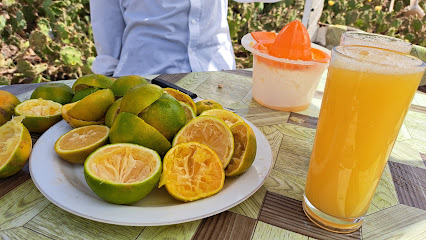
Local Phrases
-
- HelloSalamalekum
[sa-la-ma-le-kum] - GoodbyeTubab
[tu-bab] - YesEe
[ee] - NoAlaa
[a-laa] - Please/You're welcomeNa nga def
[na nga deff] - Thank youJerejef
[je-re-jef] - Excuse me/SorryBa beneen
[ba be-neen] - How are you?Nanga def?
[nan-ga deff] - Fine. And you?Nga def. Nopp?
[nga deff. nop] - Do you speak English?Noppa laa Angaleysi?
[nop-pa la an-ga-ley-si] - I don't understandDinaa laa
[di-naa la]
- HelloSalamalekum
-
- I'd like to see the menu, pleaseNoppa def seen bi, def
[nop-pa deff seen bee, deff] - I don't eat meatDinaa dee laa
[di-naa dee la] - Cheers!Sanke
[san-ke] - I would like to pay, pleaseNoppa def kharaw, def
[nop-pa deff kha-raw, deff]
- I'd like to see the menu, pleaseNoppa def seen bi, def
-
- Help!Ndanka!
[nan-ka] - Go away!Tee daan!
[tee dan] - Call the Police!Waar ngir polis!
[waar ngir po-lis] - Call a doctor!Waar ngir dokteer!
[waar ngir dok-teer] - I'm lostNoppa laa
[nop-pa la] - I'm illNoppa laa jappale
[nop-pa la jap-pa-le]
- Help!Ndanka!
-
- I'd like to buy...Noppa def xarit...
[nop-pa deff kha-rit] - I'm just lookingDefu laa
[de-foo la] - How much is it?Beuri yalee?
[beu-ri ya-lee] - That's too expensiveNyo muy def
[nyo muy deff] - Can you lower the price?Beneen yowee sa yalee?
[be-neen yo-wee sa ya-lee]
- I'd like to buy...Noppa def xarit...
-
- What time is it?Boulko wa?
[bool-ko wa] - It's one o'clockWa noppa
[wa nop-pa] - Half past (10)Ndawas
[nda-was] - MorningSuba
[su-ba] - AfternoonNgo
[ngo] - EveningDewen
[de-wen] - YesterdayHinna
[hin-na] - TodayNoppa
[nop-pa] - TomorrowBuka
[bu-ka] - 1Benn
[ben] - 2Jujj
[jooj] - 3Nde
[nde] - 4Naa
[naa] - 5Jur
[joor] - 6Jook
[jook] - 7Jeed
[jeed] - 8Jeggi
[jeg-gi] - 9Jewaa
[je-waa] - 10Fukk
[fook]
- What time is it?Boulko wa?
-
- Where's a/the...?Njaa..?
[n-ja] - What's the address?Tee numewul?
[tee nu-me-wul] - Can you show me (on the map)?Beneen yowee laa (ji map)?
[be-neen yo-wee la (jee map)] - When's the next (bus)?Benn lagay (bus)?
[ben la-guy bus] - A ticket (to ....)Ti ka (to ....)
[tee ka]
- Where's a/the...?Njaa..?
History of Lamin
-
Lamin, located in the Kombo North District of the Western Region in The Gambia, has a rich history dating back to ancient times. The area was initially settled by the Mandinka people, one of the largest ethnic groups in The Gambia. The Mandinka, who are known for their rich cultural heritage, brought with them their traditions, language, and customs that have shaped Lamin's identity over the centuries.
-
During the late 19th and early 20th centuries, Lamin, like much of The Gambia, came under British colonial rule. The British established administrative structures that influenced the socio-economic landscape of the region. Lamin was integrated into the colonial administration, impacting local governance and the economy. Despite the imposition of colonial rule, the residents of Lamin managed to preserve their traditions and cultural practices.
-
Historically, the economy of Lamin was predominantly based on agriculture. The fertile lands of the region supported the cultivation of crops such as groundnuts (peanuts), millet, and rice. These agricultural activities not only sustained the local population but also contributed to the broader Gambian economy. Traditional farming methods and communal labor systems were key aspects of Lamin's agricultural practices.
-
Lamin is renowned for its vibrant cultural heritage. The Mandinka traditions are deeply ingrained in the community, with music, dance, and storytelling playing vital roles. The Kora, a traditional West African stringed instrument, is often played during cultural ceremonies and festivals. Additionally, Lamin is known for its traditional wrestling matches, which are popular events that draw large crowds and showcase the community's strength and skill.
-
Lamin played a role in The Gambia's struggle for independence from British colonial rule. Local leaders and activists from Lamin participated in the political movements that eventually led to The Gambia gaining independence on February 18, 1965. The spirit of resilience and determination displayed by the people of Lamin during this period remains a proud part of the town's history.
-
In recent years, Lamin has seen significant development, particularly in infrastructure and tourism. The town's proximity to the capital city, Banjul, and its rich cultural heritage make it an attractive destination for tourists. Visitors to Lamin can explore traditional markets, historical sites, and enjoy cultural festivals that offer a glimpse into the community's way of life. The blend of historical significance and modern amenities makes Lamin a unique and interesting place to visit.
Lamin Essentials
-
Lamin is located in the Western Division of The Gambia, approximately 25 kilometers from the capital city, Banjul. The nearest international airport is Banjul International Airport (BJL). From the airport, you can take a taxi or arrange a hotel transfer to Lamin. The journey typically takes around 30 to 40 minutes by road. Alternatively, you can hire a car at the airport if you prefer to drive yourself.
-
Within Lamin, taxis are the most common form of transportation and are relatively inexpensive. You can also use minibuses (locally known as 'gele-gele') for short trips, which are a more affordable option. Renting a car can be convenient if you plan to explore areas outside of Lamin. Bicycles are also available for rent, offering a more leisurely way to see the town.
-
The official currency in The Gambia is the Gambian Dalasi (GMD). Credit cards are accepted in some hotels, restaurants, and larger shops, but it is advisable to carry cash, especially in smaller establishments. ATMs are available, but they may not always be reliable, so it is wise to withdraw sufficient cash in Banjul before traveling to Lamin.
-
Lamin is generally a safe destination for tourists. However, like any travel destination, it is advisable to take standard precautions. Avoid walking alone at night in unfamiliar areas and keep an eye on your belongings in crowded places. There have been reports of petty theft and scams targeting tourists, so stay vigilant and be cautious when dealing with strangers.
-
In case of emergency, dial 117 for police assistance or 116 for medical emergencies. The nearest hospital is in Banjul, but there are local clinics in Lamin for minor health issues. It is recommended to have travel insurance that covers medical emergencies. For minor health issues, there are pharmacies in the town where you can purchase over-the-counter medications.
-
Fashion: Do dress modestly, especially when visiting religious sites. Avoid wearing overly revealing clothing. Religion: Do respect local customs and traditions. Remove your shoes when entering mosques and always dress modestly. Public Transport: Do be respectful and give up your seat to elderly passengers. Don't eat or drink on public transport. Greetings: Do greet people with a handshake or a simple 'hello.' A smile goes a long way. Eating & Drinking: Do try local dishes and accept food offerings graciously. Don't refuse hospitality, as it is considered impolite.
-
To experience Lamin like a local, visit the local markets where you can buy fresh produce and traditional Gambian goods. Engage with locals, as they are often friendly and willing to share stories about the town's history and culture. Don't miss visiting the Lamin Lodge, a popular spot for bird watching and enjoying the serene river views. For a unique experience, take a boat trip along the River Gambia to see the diverse wildlife and mangrove forests.
Nearby Cities to Lamin
-
Things To Do in Serrekunda
-
Things To Do in Serekunda
-
Things To Do in Banjul
-
Things To Do in Bakau
-
Things To Do in Brikama
-
Things To Do in Gunjur
-
Things To Do in Kaolack
-
Things To Do in Farafenni
-
Things To Do in Soma
-
Things To Do in Mbour
-
Things To Do in Thiès
-
Things To Do in Canchungo
-
Things To Do in Dakar
-
Things To Do in Janjanbureh
-
Things To Do in Bissau






